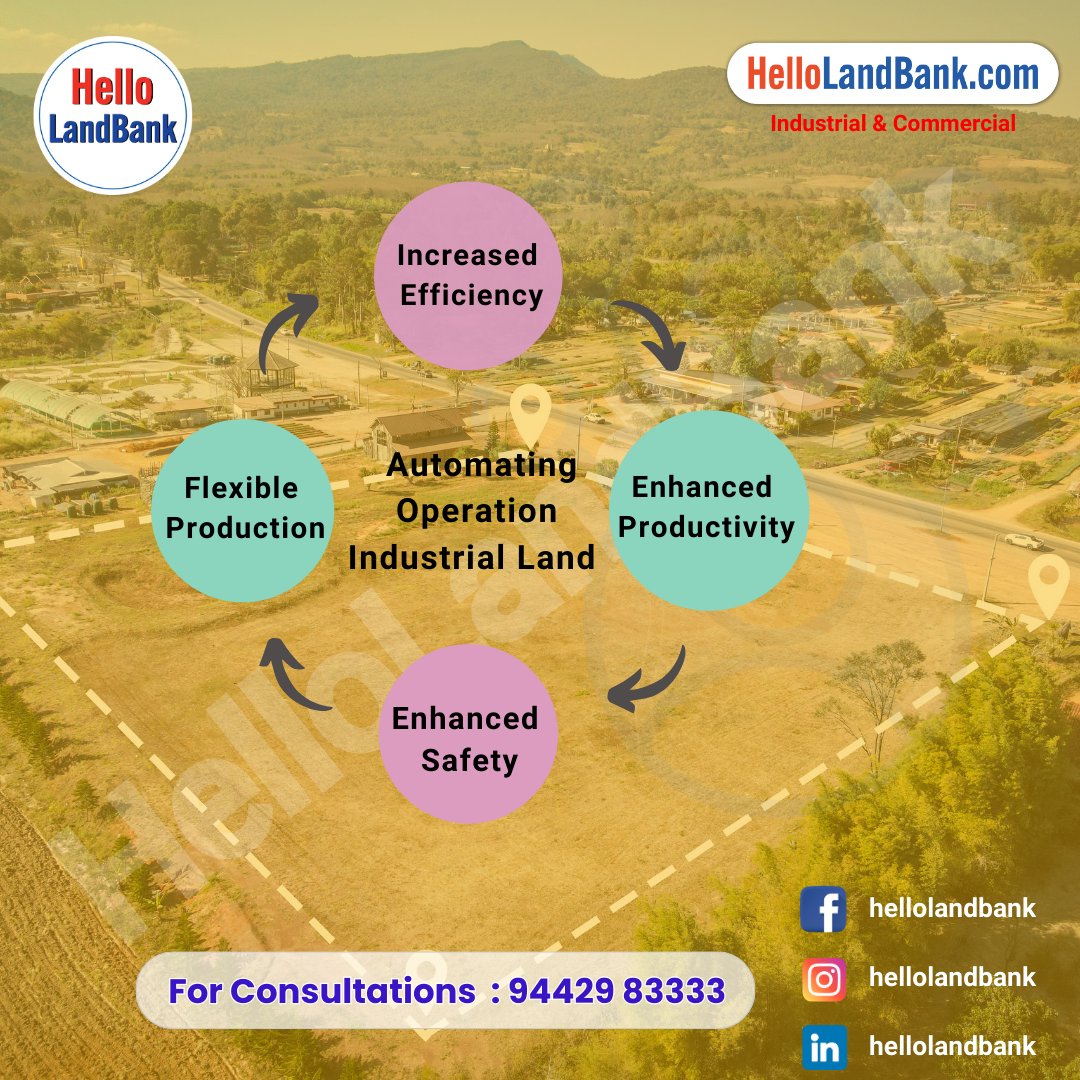Automating operations on industrial land offers numerous benefits that improve efficiency, productivity, safety, and cost-effectiveness. Here are some of the key advantages of automating operations on industrial land:
1. Increased Efficiency:
- Automation streamlines industrial processes, reduces manual intervention, and accelerates task completion times, leading to higher operational efficiency. Automated systems can perform repetitive tasks, such as material handling, assembly, packaging, and quality control, with greater speed and precision than human operators, minimizing cycle times and maximizing throughput.
2. Enhanced Productivity:
- Automation increases productivity by optimizing resource utilization, minimizing downtime, and maximizing equipment uptime. Automated machinery and robotic systems can operate continuously, 24/7, without breaks or fatigue, enabling higher production rates, increased output volumes, and improved overall productivity levels on industrial land.
3. Improved Quality Control:
- Automation improves quality control by standardizing processes, reducing errors, and ensuring consistency in product quality and specifications. Automated systems can perform precise measurements, inspections, and quality checks at high speeds, detecting defects, deviations, or non-conformities early in the production process and facilitating timely corrective actions to maintain product quality standards.
4. Enhanced Safety:
- Automation enhances safety by reducing the need for manual labor in hazardous or physically demanding tasks, minimizing the risk of workplace accidents, injuries, and occupational hazards. Automated systems can handle heavy loads, operate in confined spaces, and perform repetitive tasks with minimal human intervention, mitigating safety risks and creating safer work environments for employees.
5. Cost Reduction:
- Automation reduces labor costs, operational expenses, and production waste by optimizing resource utilization, minimizing labor requirements, and improving process efficiency. Although initial investments in automation technologies may be substantial, the long-term cost savings achieved through increased productivity, reduced labor costs, and minimized waste often outweigh the upfront investment costs.
6. Flexible Production:
- Automation enables flexible production capabilities, allowing industrial operations to adapt quickly to changing market demands, customer requirements, and production schedules. Automated systems can be reconfigured, reprogrammed, or repurposed to accommodate different productvariants, production volumes, or manufacturing processes, providing greater agility and responsiveness to market dynamics.
7. Data-driven Decision Making:
- Automation facilitates data collection, analysis, and real-time monitoring of operational performance metrics, allowing for data-driven decision-making and continuous process improvement. Automated systems generate valuable production data, performance indicators, and analytics insights that enable managers to identify bottlenecks, optimize workflows, and implement targeted improvements to enhance operational efficiency and competitiveness.
8. Environmental Sustainability:
- Automation promotes environmental sustainability by optimizing resource utilization, reducing energy consumption, and minimizing environmental impacts associated with industrial operations. Automated systems can optimize energy usage, reduce material waste, and minimize emissions through efficient process control, equipment optimization, and predictive maintenance strategies, contributing to sustainable manufacturing practices and environmental stewardship.
9. Competitive Advantage:
- Automation provides a competitive advantage by enhancing operational capabilities, improving product quality, and reducing time-to-market for industrial products and services. Companies that embrace automation technologies can differentiate themselves in the marketplace, increase market share, and outperform competitors by delivering superior products, services, and customer experiences.
Overall, automating operations on industrial land offers a wide range of benefits that drive operational excellence, enhance competitiveness, and enable sustainable growth in today’s dynamic business environment. By leveraging automation technologies effectively, industrial enterprises can optimize performance, achieve operational excellence, and unlock new opportunities for innovation and growth.




